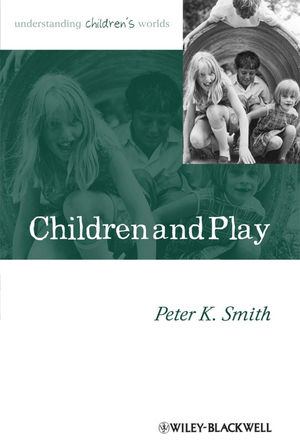Children and Play: Understanding Children's WorldsISBN: 978-0-631-23521-7
Hardcover
272 pages
May 2009, Wiley-Blackwell
 This is a Print-on-Demand title. It will be printed specifically to fill your order. Please allow an additional 10-15 days delivery time. The book is not returnable.
Other Available Formats: Paperback
|
||||||
Smith's unique contribution to play scholarship has been his
identification of the play ethos. This social movement has had a
distorting effect on research by inflating evidence for the value
of play for children and of the necessity for parent-child play. In
this volume, Smith almost surgically removes the play ethos
cataract that obscures play scholarship. In doing so he reminds us
that there are still many important questions regarding juvenile
play which await serious research."
–Professor David F. Lancy, Anthropology, Utah State
University, USA
"Peter Smith's book, Children and Play, is what one would
expect from one of the leading figures in the field of play.
Drawing on his extensive knowledge of evolutionary theory and the
human developmental and comparative play literatures, Smith
presents a comprehensive picture of the complexities of the place
of play in human development as well as measured analyses of its
place in schools. This book is a crowning achievement to his close
to 40 years of careful study of the field. I learned a great deal
from it."
–Professor Anthony D. Pellegrini, Educational
Psychology, University of Minnesota, USA
"This book is an excellent synthesis of what is currently known
about the play of children. Peter Smith, one of the leading
play researchers of our time, sheds new light on some long-debated
issues such as the definition of play, play’s role in
development and evolution, and the relationship between play and
culture. In addition, individual chapters provide rich detail about
particular types of play, including the much neglected category of
physical play. The volume concludes with a very interesting
discussion of practical issues, including parental involvement in
play, play's role in education, the importance of school recess,
and war play. I was very impressed with Professor
Smith’s balanced, objective discussion of play
research. He effectively argues for a “middle
way” of viewing play, a view that neither idealizes nor
denigrates its importance in the lives of children."
–Professor James Christie, Curriculum and Instruction,
Arizona State University, USA



